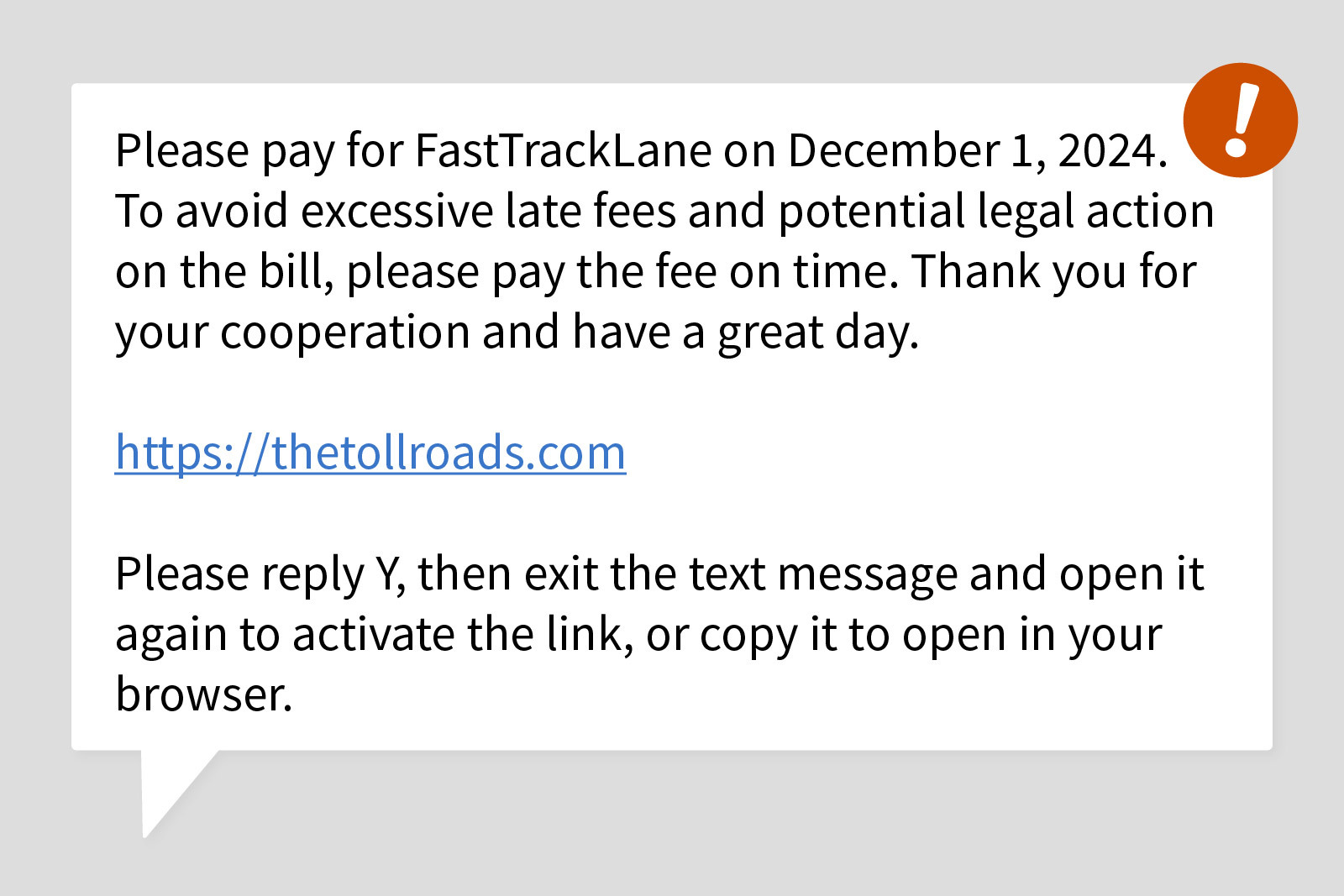By this time, you may have gotten a similar text out of the blue.
It’s about that toll you haven’t paid yet. Never mind you don’t remember the trip.
Odds are, it’s a smishing toll scam. And the FBI is warning you not to respond because the toll scam has one specific goal: to steal your sensitive information and your money.
What are Toll Scams?
They are an attempt to convince you that you have an unpaid toll and could face financial or legal consequences if you don’t settle the matter immediately and include a bogus link.
According to the FBI, toll scams produced 2,000 complaints in the last calendar year, which only hints at the problem.
According to a major cybersecurity firm, criminals have registered more than 10,000 website domains just to execute their toll scam schemes.
“When you receive one of these text messages, you might remember going to the beach and maybe passing through a toll booth, but you’re not 100 percent sure,” said Jeff Taylor, head of Commercial Fraud Forensics. “Take caution and verify the receipt of an authorized letter and payment before clicking on the link.”
The FBI advises you act quickly to help put a stop to this fraud.
5 Tips to Stop Toll Scams
- File a complaint with the IC3, www.ic3.gov, be sure to include:
-
- The phone number from where the text originated.
- The website listed within the text.
- Check your account using the toll service’s legitimate website.
- Contact the toll service’s customer service phone number.
- Delete any smishing texts received.
- If you clicked any link or provided your information, take efforts to secure your personal information and financial accounts. Dispute any unfamiliar charges.
-
-

If you get one of these toll scam texts, report and delete. Remove the threat from your phone and help law enforcement put an end to these criminal actors.
Kimberly Reece, Regions Fraud Prevention Customer Advocacy team
“Listen to the FBI,” said Kimberly Reece of the of the Regions Fraud Prevention Customer Advocacy team. “If you get one of these toll scam texts, report and delete. Remove the threat from your phone and help law enforcement put an end to these criminal actors.”
Additional Resources from Regions.com
Related Articles from Doing More Today
The information presented is general in nature and should not be considered, legal, accounting or tax advice. Regions reminds its customers that they should be vigilant about fraud and security and that they are responsible for taking action to protect their computer systems. Fraud prevention requires a continuous review of your policies and practices, as the threat evolves daily. There is no guarantee that all fraudulent transactions will be prevented or that related financial losses will not occur. Visit regions.com/STOPFRAUD or speak with your Banker for further information on how you can help prevent fraud.
All fraudulent transactions will be prevented or that related financial losses will not occur. Visit regions.com/STOPFRAUD or speak with your Banker for further information on how you can help prevent fraud.